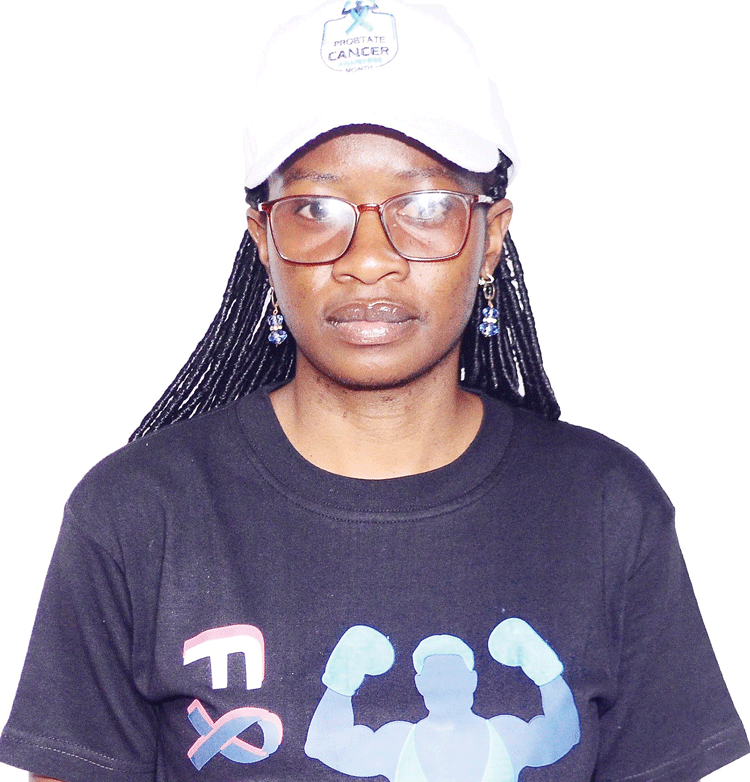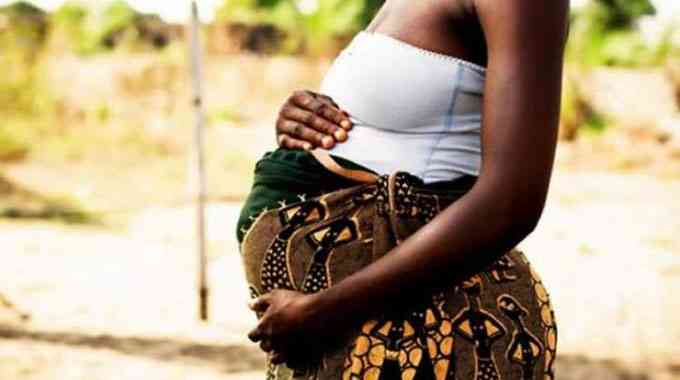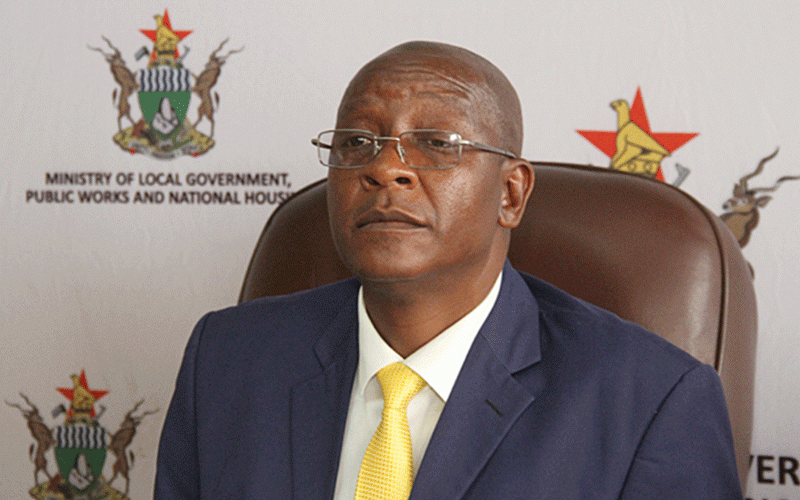
By Thomas Chidamba
OCTOBER is always painted pink as part of efforts to create awareness of breast cancer. In Zimbabwe, it is said that one in eight women develops breast cancer in her lifetime. NewsDay (ND) reporter Thomas Chidamba caught up with Talk Cancer Zim president and also radiotherapist Michelle Madzudzo (MM) who said more needed to be done to create breast cancer awareness even after October. Read on …
ND: What is the situation with breast cancer in Zimbabwe?
MM: One in eight women will develop breast cancer worldwide. In 2013, according to the national cancer registry of Zimbabwe (latest publication to date), there were 6 514 cases of cancer in Zimbabwe and breast cancer constituted 8% of the cases.
It is the second most common cancer in Zimbabwean women after cervical cancer.
ND: What is Talk Cancer Zim doing to raise awareness of breast cancer?
MM: Despite the COVID-19 pandemic, Talk Cancer Zim has not relented on its mandate to raise awareness of cancer.
In our bid to raise awareness of breast cancer in October, Talk Cancer Zim designed an awareness campaign targeting four broad categories, which are individuals, communities, schools and colleges and corporates.
- Chamisa under fire over US$120K donation
- Mavhunga puts DeMbare into Chibuku quarterfinals
- Pension funds bet on Cabora Bassa oilfields
- Councils defy govt fire tender directive
Keep Reading
We are using national media to reach out to the public in every part of the country.
We were invited for a breast cancer talk show on HStv on a National Aids Council-sponsored programme called HIV interventions to talk about breast cancer treatment.
ND: What community interventions are you undertaking?
MM: Breast cancer affects mostly women, so Talk Cancer Zim is having online and in-person meetings with women in some churches in Harare and Chitungwiza.
There is an increase in the incidences of breast cancer in Zimbabwean women, and this calls for the expansion of preventive efforts.
Traditional healers in Zimbabwe are consulted by a range of women in their communities because they have a basic knowledge of breast cancer.
The training of traditional healers can be enhanced so as to facilitate their professionalisation and their collaboration with other healthcare workers in the prevention of breast cancer.
As an organisation, raising awareness of breast cancer to traditional healers is an effective way of reaching out to the communities they live in.
It is against this background that Talk Cancer Zim in partnership with Zimbabwe National Indigenous Practitioners Association is hosting a think pink indaba in commemoration of breast cancer awareness month 2021 at the end of the month.
For schools and colleges, there seems to be a large gap or deficit on the amount of breast cancer information.
Talk Cancer Zim will educate high school students in Harare on breast cancer, so that they can share the knowledge with their parents, relatives and neighbhours at home.
For corporates, the virtual corporate awareness programme has been going on since March and this October, Talk Cancer Zim is doing virtual breast cancer sessions with corporates using Zoom or Microsoft teams.
The sessions are meant to sensitise the elite population on breast cancer issues.
A lot can be done for a more effective campaign, but lack of resources, especially human and financial resources, limit our reach.
Talk Cancer Zim has a national vision and wants to target everyone and decentralise our awareness activities to all towns and provinces.
The rural population needs awareness. We need to reach out and carry out integrated outreach programmes to the grassroots in areas such as Binga, Gwanda, Mt Darwin and Checheche. We need a cancer free Zimbabwe.
ND: Do you think one month annually is enough to create awareness on breast cancer?
MM: A big no! From January to December, most organisations and Zimbabweans will be behind the scenes planning for breast cancer month and wear pink, think pink, talk pink, but the fact is breast cancer does not wait, neither should we.
Why wait for October so that we start the conversation on breast cancer? Your health matters everyday.
Why wait for October to do a breast self-examination, get mammography or commemorate breast cancer survivors, and fundraise for breast cancer patients?
Breast cancer exists everyday, and people get diagnosed with breast cancer any time of the year. Simply put, breast cancer exists everyday.
We can celebrate our cancer survivors everyday. Awareness should go beyond October. Let’s think pink throughout the year.
The more the conversation on screening is emphasised, the greater the uptake.
There is need to create a culture where every woman knows that a monthly breast self-examination, an annual clinical self-examination, an annual mammogram could save a woman’s life.
The key message should be early detection and treatment saves lives.
But women can’t do it alone, there’s now an urgent need establish a national breast cancer screening programme with guidelines that our Zimbabwean women can follow and abide by and there is need to avail more resources towards breast cancer screening services such as clinical breast exams, mammography, ultrasound and MRI [magnetic resonance imaging].
Ideally, if all central, provincial and district hospitals could offer screening services, it would go a long way in reducing mortality due to breast cancer.
These services should be affordable and accessible to every woman in Zimbabwe. To reach to the grassroots, mobile breast cancer screening services can be offered and there is need to strengthen integrated breast cancer outreach programmes.
ND: There are so many misconceptions about breast cancer, what is Talk Cancer Zim doing to clear such myths?
MM: The myths and misconceptions surrounding this malignancy can lead to needless worry and even hinder good prevention and treatment decisions.
There are a lot of informal sources of communication, especially friends, relatives and colleagues who continue to be the major sources of information about breast cancer, while the formal sources seem to be passive.
Talk Cancer Zim and other cancer awareness organisations, health professionals and the Health and Child Care ministry have an overdue responsibility to rescue Zimbabwean women from the catastrophic trap so that they can freely enjoy their rights to good health and get timely, useful, correct and relevant cancer information from trusted and authentic sources with expert knowledge.
This October, we authored an article debunking persistent breast cancer myths. There is need for accelerated information, education and communication regarding breast cancer.
ND: Are men safe from breast cancer?
MM: Even though 99% of cases appear in women, breast cancer can also affect men since they also have breast tissue.
According to statistics, one in eight women will develop breast cancer in their lifetime, while one in 833 men will also develop breast cancer. Although cases are fewer, it’s a reality to some of them.
ND: What is the best stage to treat breast cancer?
MM: The success of cancer treatment depends on the stage of the disease, among other factors. The earlier you get a diagnosis, the higher your chances of survival.
Stage one and stage two cancers have favourable prognosis, while stage three can be treated successfully in some cases. However, advanced cancers have poor prognosis.
ND: Cancer is said to be expensive to treat, do we have enough resources to treat it?
MM: A diagnosis of cancer is devastating for anyone, but in high-income countries, people can be reassured that they will receive treatment and be hopefully cured. Good for them.
It’s a different story for developing nations like Zimbabwe. The greatest challenge that developing countries face when it comes to cancer treatment is limited access to medical care. According to the International Atomic Energy Agency, for every 500 000 to one million of the population, there should be one or two linacs (radiotherapy machines).
At the moment we have six in the country, which may not all be functional at any given moment.
That’s why it makes sense for us as radiation therapists that in order to reduce the cancer burden on the country, there is need to strengthen preventive effort through cancer awareness.
However, there is need to revive radiotherapy services in the country. The State acquired five state-of-the-art radiotherapy machines, these need to be repaired, maintained and serviced.
In order to compliment efforts by government in fighting cancer, the business community, civil society organisations, individuals and other stakeholders should converge towards the same cause.
Follow Thomas on Twitter @chidambathomas











